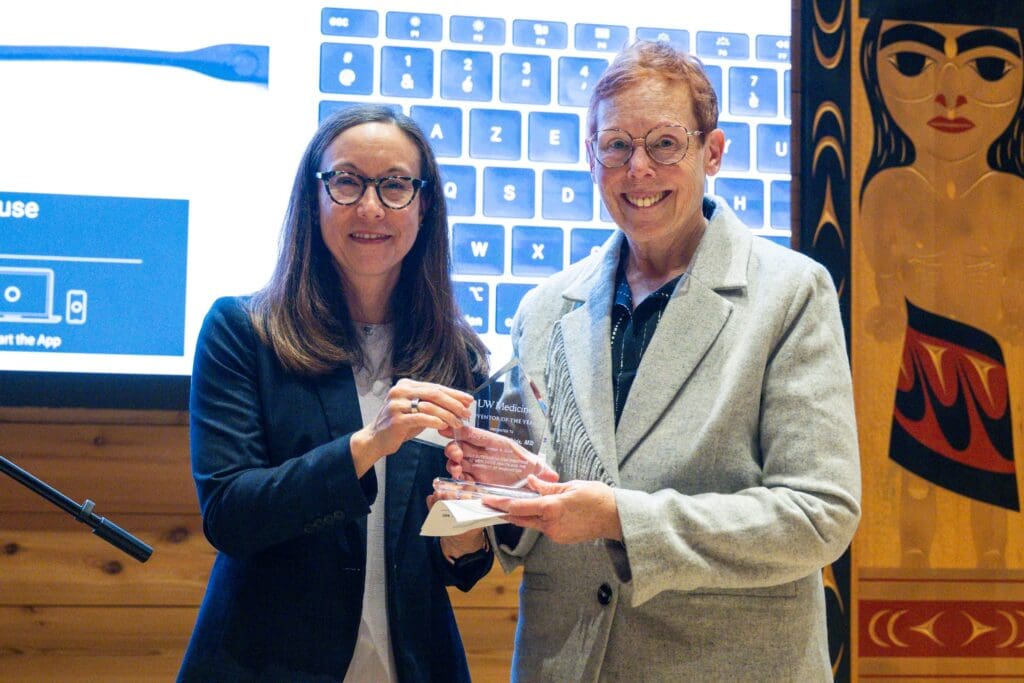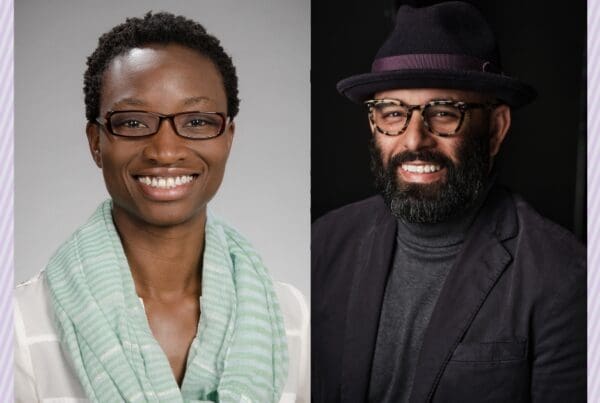Highlights | 2024 Inventor of the Year
- Nora Disis, MD, director of the Cancer Vaccine Institute at UW Medicine, is laser-focused on moving research discoveries from the lab to the bedside.
- Disis and her team have led more than 30 clinical trials testing cancer vaccines and immunotherapies.
- Collaboration is critical to the institute’s success. Disis works with researchers nationwide, including some she trained at UW Medicine.
When Nora Disis, MD, was a young research fellow at UW Medicine, she noticed that some of her coworkers advanced their research to the next level, and others faltered. What made the difference? The answer to that question has guided her career for over three decades.
“It’s so tempting to go down rabbit holes as a researcher,” says Disis, the 2024 UW Medicine Inventor of the Year. “Eventually, I realized that you must maintain laser focus, especially if you are pursuing multiple goals at once. When I became director of the Cancer Vaccine Institute at UW Medicine in 2016, my team and I decided we would bring ground-breaking research out of the lab and into the treatment setting. That decision helped us move every project forward in the right direction.”
A leader in cancer vaccine development
Today, Disis and about 45 other scientists at the institute develop vaccines and immunotherapies that treat and prevent cancer. Together, they have led more than 30 clinical trials. Disis holds multiple patents for targeted cancer therapies and diagnostics.
The Cancer Vaccine Institute is the country’s largest academic institute focused on cancer vaccines. Researchers there are testing several vaccines in clinical trials, including vaccines that:
- Target cancer stem cells that don’t respond well to chemotherapy or radiation therapy.
- Prevent colorectal cancer.
- Target precancerous lesions that increase a woman’s risk for breast cancer.
- Target a noncancerous condition that can lead to an increased prostate cancer risk.
Additional research is in the early stages, including vaccines to target a cancer risk factor (inflammatory obesity) and to prevent autoimmune diseases that increase the risk of colorectal cancer.
“Right now, there is only one Food & Drug Administration-approved vaccine doctors use to treat cancer and four others they use to prevent infections that cause cancer,” Disis says. “But our field is on the cusp of making significant breakthroughs in cancer vaccine development. Every month, there’s news of an exciting new cancer vaccine trial.”
30 years and counting at UW Medicine
Disis became interested in cancer immunology as a medical student at the University of Nebraska Medical School. In 1991, after completing her medical degree and a master’s in immunology, she moved west for her fellowship at UW Medicine. At the time, she says, UW Medicine was one of only a few institutions doing deep cancer immunology research.
At UW Medicine, Disis studied the potential for breast cancer immunotherapies, first in the lab and then in the clinical research setting. She is also focused on training the next generation of cancer immunologists. Disis estimates she has trained about 50 medical students and post-doctoral fellows. Some, like her, lead cancer vaccine programs.
Working for a common cause
Disis is well-known in cancer research circles: She helped launch the Journal of the American Medical Association (JAMA) Oncology in 2015 and continues to serve as founding editor. In addition, Disis recently received the 2024 Lifetime Achievement Award from the Puget Sound Business Journal and is the inaugural recipient of the Wayne Kuni Award for Innovation in Cancer Research.

Shelly Sakiyama-Elbert (left) presenting Nora Disis (right) with Inventor of the Year award.
When asked what she’s most proud of in her distinguished career, Disis points to her team.
“We have such a cohesive group at the Cancer Vaccine Institute — many of us have worked here for 20 years,” she says.
Researchers work in a shared lab space to foster collaboration. “We work on projects side by side and bounce ideas off each other,” Disis says. “When we think we’re close to taking a vaccine to the clinical setting, we start talking to doctors at UW Medicine to get their input.”
Collaboration extends beyond the walls of UW Medicine to other institutions across the country, Disis adds.
“A lot of people think scientists don’t talk to each other — as if we want to keep our work a secret and win some type of race,” she says. “But cancer immunologists share ideas and resources. We don’t care who cracks this nut as long as the nut gets cracked.”
“Everyday amazing people” continue to inspire Disis
Disis spends most of her time in the lab with other researchers, but her early interactions with patients continue to inspire her.
“I spent the first part of my career in the clinic giving experimental vaccines to women with breast and ovarian cancer,” she says. “I remember thinking, ‘wow — I’m here because this is my life’s work. But they’re here because they want to help even one person not get the type of cancer they have.’”
Memories of those “everyday amazing people” making a difference help Disis maintain her laser focus on cancer vaccine development.
“I feel like I can never stop working,” she says. “I have to give everything for these courageous people.”



